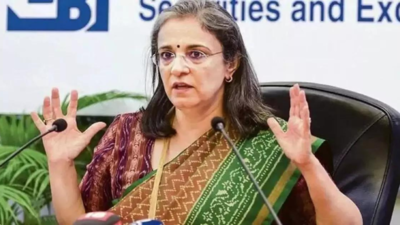
Gandhi’s demand comes amidst growing scrutiny of Sebi's handling of recent market incidents, which critics argue highlight systemic flaws in the regulatory framework. His remarks have been met with support from key allies in the opposition, including the Samajwadi Party (SP) and the Aam Aadmi Party (AAP). Both parties have echoed Gandhi’s sentiments, advocating for a change in leadership at Sebi to restore confidence in the financial regulatory system.
The Samajwadi Party, led by Akhilesh Yadav, has expressed concern over what they describe as a lack of decisive action from Sebi, which they believe has allowed market malpractices to persist unchecked. Yadav's party has been vocal in calling for greater accountability and transparency in financial regulation.
Similarly, the Aam Aadmi Party, under Arvind Kejriwal’s leadership, has also rallied behind Gandhi’s call. The AAP argues that a new Sebi chief could bring about necessary reforms to address long-standing issues within the regulatory body. The party has highlighted several instances where they believe Sebi's actions—or lack thereof—have undermined investor protection and market integrity.
The controversy surrounding Sebi's leadership is set against a backdrop of heightened market volatility and increasing public scrutiny of financial institutions. Critics argue that the regulatory body has struggled to keep pace with evolving market dynamics and emerging risks, which has fueled the demand for leadership changes.
In response to these calls, the government has remained largely non-committal. Officials have emphasized that Sebi operates with a degree of autonomy and that any decisions regarding its leadership are made based on a comprehensive review of performance and regulatory effectiveness. They have also pointed to ongoing reforms aimed at enhancing market oversight and improving regulatory practices.
As the debate continues, attention will likely focus on the political ramifications of Gandhi's statements and the potential impact on Sebi’s regulatory agenda. The support from SP and AAP could signal a broader coalition of opposition parties pushing for systemic changes within India’s financial regulatory framework.
The growing chorus of criticism and calls for action underscores the increasing pressure on Sebi to demonstrate its effectiveness and responsiveness in a rapidly evolving financial landscape.
